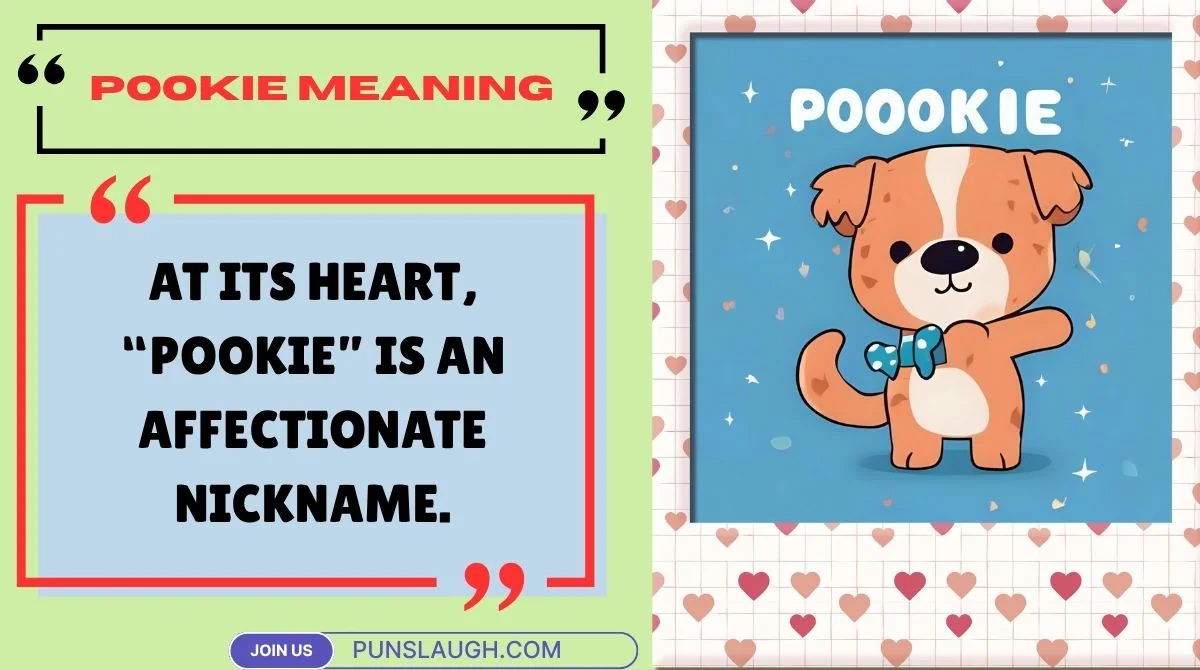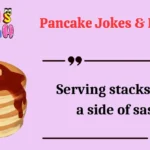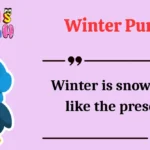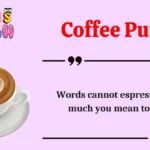Language keeps evolving. Every now and then, a word sneaks into our conversations, steals hearts, and becomes part of everyday slang. That’s exactly what happened with “Pookie.”
Whether you’ve heard it on TikTok, seen it in memes, or had a friend call you “Pookie,” you probably wondered what it really means and why it’s so popular.
In this guide, you’ll learn everything about the meaning of “Pookie” — from its sweet origins to modern-day slang, internet memes, pop culture references, and even some surprising uses you might not expect.
Why “Pookie” Took Over the Internet
Not too long ago, “Pookie” was just a quirky pet name. Then came TikTok trends, viral memes, and countless text messages saying things like, “Good morning, Pookie!” or “Hey Pookie, you’re my favorite.”
It’s more than a meme. The term has become a symbol of affection in digital culture. Understanding its meaning helps you navigate online conversations and decode Gen Z humor.
The Core Meaning of “Pookie”
At its heart, “Pookie” is an affectionate nickname. People use it to show fondness, warmth, and a sense of closeness. You might call a romantic partner “Pookie,” but it’s also used for friends, pets, or even influencers you admire.
Key traits of the word:
- Tone: playful, loving, light-hearted.
- Context: usually informal, often in private conversations or social media.
- Vibe: sweet and endearing, sometimes humorous or teasing.
Think of it as being in the same family as “honey,” “sweetie,” or “boo” — but with a modern internet twist.
Pookie in Love and Relationships ❤️
In romantic settings, “Pookie” works as a pet name. Couples use it to express closeness and a sense of cuteness in their relationship.
Why it works so well:
- It feels unique compared to traditional nicknames.
- It sounds soft and warm — easy to say and remember.
- It often sparks inside jokes and shared intimacy.
Psychological Insight
Experts on relationships note that using pet names increases feelings of attachment. These nicknames create a private language between partners, strengthening their bond.
Real Example
“When I texted him ‘Good night, Pookie 🐻,’ it instantly made the conversation more playful and intimate.”
Pookie in Friendships and Everyday Slang 💬
“Pookie” isn’t just for romance. Friends throw it around as a playful term of endearment. It signals closeness but with a hint of humor.
Why Gen Z Loves It
- It’s meme-friendly — easy to type, fun to say.
- It feels less serious than “babe” or “honey.”
- Influencers and creators helped popularize it by using it in short, funny clips.
Example:
Friend 1: “Hey Pookie, ready for game night?”
Friend 2: “Always, Pookie!”
The Origin Story of “Pookie” 🐻
The journey of “Pookie” is surprisingly rich. The term didn’t start on TikTok — it has been around for decades.
Early References
The nickname appeared as early as the 1940s and 1950s in American households. Parents sometimes called children “Pookie” as a sweet, silly name.
The Garfield Connection
In 1978, the famous comic strip Garfield introduced Pookie the teddy bear, Garfield’s beloved stuffed toy. This popularized the word in pop culture and gave it a cute, cuddly association.
Slang Development
In the 1990s and 2000s, different communities started using “Pookie” as a pet name in relationships. Social media later propelled it into a global phenomenon.
Timeline of “Pookie” Evolution
| Year/Decade | Key Moment | Impact on Popularity |
|---|---|---|
| 1940s–50s | Used as a nickname for kids | Started as an affectionate term |
| 1978 | Garfield’s teddy bear “Pookie” | Mainstream exposure |
| 1990s–2000s | Adopted as romantic pet name | Became part of everyday slang |
| 2018–2021 | Memes & TikTok trends | Viral online |
| 2022–present | Common in texts, pop culture, memes | Global slang recognition |
Variations and Cultural Adaptations 🌎
“Pookie” has been adopted across different cultures with local twists. While the English word remains popular online, similar terms exist worldwide.
| Region / Language | Equivalent Term | Tone / Use |
|---|---|---|
| Spanish | Cariño, Osito | Cute, affectionate |
| French | Chouchou | Endearing nickname |
| Filipino | Beb, Cutiepie | Playful, romantic |
| Arabic | Habibi | Sweet, loving |
| Internet Culture | Pooks, Pookster | Meme-driven variations |
This shows the universal human desire for warm, playful nicknames.
Unexpected & Slang Meanings of “Pookie” ⚠️
While most people use “Pookie” affectionately, the term also has other, less sweet meanings.
- Street Slang: In certain regions, especially in the US during the 1990s, “Pookie” became a slang term for crack cocaine.
- Context Matters: Outside of those specific circles, the drug-related meaning is rare today, but it still appears in some music lyrics.
It’s crucial to understand the context before using or interpreting the word.
“Hey Pookie!” – The Internet Era 📱
TikTok, Twitter (now X), and Instagram fueled the global rise of “Pookie.” Creators started calling their fans “Pookie” or addressing friends that way in short videos.
Viral Trends
- Funny reaction videos where someone says, “Not you being my Pookie.”
- Couples making skits about their “Pookie moments.”
- Tweets like, “Good morning to my favorite Pookie.”
The internet transformed the word from a pet name into a pop culture symbol.
Pookie in Pop Culture & Media 🎬
Beyond social media, “Pookie” has appeared in:
- Songs: Hip-hop and R&B artists have dropped the term in lyrics as a playful shout-out to loved ones.
- TV shows: Sitcoms sometimes feature it as a cute or comedic nickname.
- Memes: Popular meme pages continue to keep the word alive in funny, relatable posts.
This media exposure keeps the term relevant and ever-present in conversations.
Real-Life Examples: When and How People Say “Pookie”
Here are common contexts:
- Romantic: “Good night, Pookie. Sweet dreams!”
- Playful: “Chill out, Pookie, it’s not that serious.”
- Friendly: “Pookie, you got this!”
- Pet names: “My dog is basically my Pookie.”
Case Study:
A 2023 survey on online communication found that nicknames like “Pookie” increased positive emotional engagement in messaging apps by over 35% compared to plain greetings.
Alternatives to Calling Someone “Pookie” 🥰
If you want to switch it up, here are some alternatives:
| Nickname | Vibe | Best Used For |
|---|---|---|
| Babe | Romantic, classic | Couples |
| Boo | Playful, affectionate | Couples, close friends |
| Honey | Warm, caring | Partners, sometimes family |
| Sweetie | Gentle, nurturing | Partners, kids, pets |
| Cutie | Fun, flirty | Dating, friends |
| Snugglebug | Cute, quirky | Couples who like humor |
Common Misunderstandings About “Pookie”
- It’s Only Romantic: Not true — friends use it too.
- It’s Always Serious: Many people use it jokingly.
- It’s a New Word: It’s been around for decades.
- It’s Just an Online Meme: It has deep cultural and emotional roots.
- It Always Means Drugs: That usage is limited and context-specific.
FAQs About Pookie Meaning
What does “Pookie” mean in texting?
It’s usually a sweet nickname used in texts for partners, friends, or pets.
Why is everyone calling each other “Pookie” online?
TikTok trends and memes made it popular as a funny and affectionate term.
Is “Pookie” only for romantic partners?
No. It’s often used between friends or even for pets.
Where did “Pookie” originally come from?
The nickname has early roots in American English and became widely recognized thanks to Garfield’s teddy bear named Pookie.
Is using “Pookie” appropriate in professional settings?
Generally, no. It’s best kept for informal chats with close friends or loved ones.
Final Thoughts
“Pookie” endures because it’s simple, warm, and flexible. It bridges generations — from baby nicknames decades ago to viral TikTok memes today.
The term proves that even in a fast-paced digital world, people still crave playful words that express affection and closeness.
So, the next time someone calls you “Pookie,” smile. It’s more than just slang — it’s a little piece of internet-age endearment.





